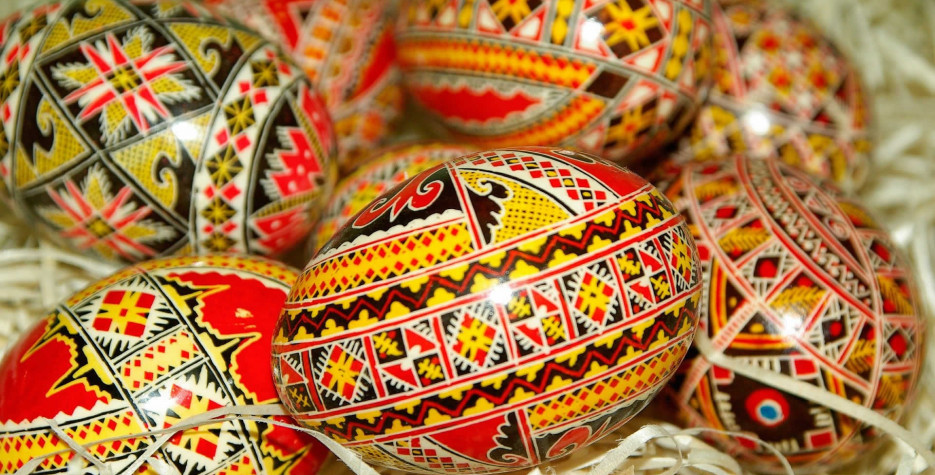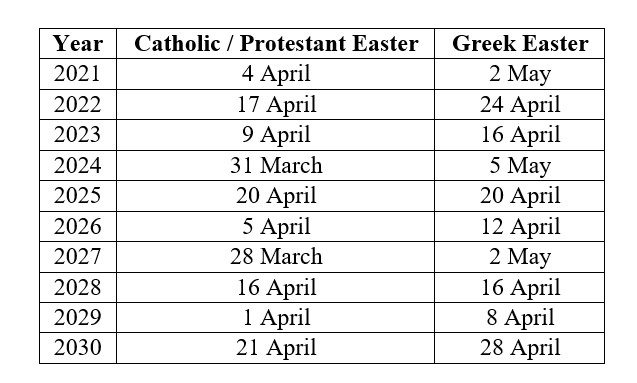Are you curious about Orthodox Easter 2023 OCA? Do you want to know the significance of this religious holiday and what it entails? If so, then you’ve come to the right place! In this article, we will discuss everything you need to know about Orthodox Easter 2023 OCA, its origins, and customs, so keep reading to find out more.
Pain Points
For those who celebrate Orthodox Easter 2023 OCA, it can be challenging to navigate through the different dates and practices. It can also be difficult to reconcile cultural and religious traditions with modern-day life, especially for those living in different parts of the world. Additionally, there may be language barriers or a lack of resources available to fully understand the customs of the holiday.
What is Orthodox Easter 2023 OCA?
Orthodox Easter, also known as Pascha in Greek, is one of the most significant holidays on the Orthodox Christian calendar. The OCA, or Orthodox Church in America, follows the Julian calendar rather than the Gregorian calendar used by many Western Christian denominations, which is why the date of Orthodox Easter varies each year. In 2023, Orthodox Easter will fall on April 16th.
Main Points
Orthodox Easter 2023 OCA is a celebration of the resurrection of Jesus Christ and is observed by Orthodox Christians around the world. The date of the holiday is based on the Julian calendar, which is around two weeks behind the Gregorian calendar. The most important customs of the holiday include fasting, attending church services, and participating in traditions such as dyeing eggs, baking delicious treats, and engaging in charitable work. These practices are meant to symbolize the resurrection of Jesus and the new beginning that it brings.
The Significance of Orthodox Easter 2023 OCA
For many Orthodox Christians, Orthodox Easter is more than just a religious holiday – it’s a time to come together with friends and family, share a meal, and connect with their roots. This was certainly the case for me, growing up in a Greek Orthodox household. One of my fondest memories was dyeing eggs with my grandmother and hearing stories about our family’s traditions. Orthodox Easter is a time to celebrate heritage and honor those who have come before us.
Celebrations Around the World
Orthodox Easter is celebrated in many different countries and cultures, each with its own unique customs and traditions. In Greece, for example, it is customary to roast a whole lamb over an open flame and enjoy it with family and friends. In Orthodox communities in Russia, Belarus, and Ukraine, people are known to visit the graves of their loved ones and offer them Easter bread and painted eggs. No matter where you go, Orthodox Easter is a time of community and connection.
The Significance of Fasting
Fasting is an important part of Orthodox Easter preparations and involves abstaining from certain foods for a period of 40 days. This is meant to symbolize the 40 days that Jesus spent fasting in the desert before he began his ministry. Fasting is seen as a way to cleanse the body and soul, and to prepare oneself for the spiritual significance of the holiday.
The Meaning Behind Egg Dyeing
Dyeing eggs has been a longstanding tradition in Orthodox Easter celebrations, symbolizing new life and the resurrection of Jesus. The eggs are often dyed red, which represents the blood of Christ, or other bright colors to signify joy and happiness. In some cultures, eggs are even exchanged as gifts or used in competitions, such as egg tapping or egg rolling.
Question and Answer
Q: Why does the date of Orthodox Easter vary each year?
A: The date of Orthodox Easter is based on the Julian calendar, which is around two weeks behind the Gregorian calendar used by many Western Christian denominations. This is why the date of Orthodox Easter varies each year.
Q: What is the significance of fasting during Orthodox Easter preparations?
A: Fasting is an important part of Orthodox Easter preparations and is meant to symbolize the 40 days that Jesus spent fasting in the desert before he began his ministry. It is a way to cleanse the body and soul and prepare oneself for the spiritual significance of the holiday.
Q: Why are eggs dyed during Orthodox Easter celebrations?
A: Dyeing eggs has been a longstanding tradition in Orthodox Easter celebrations, symbolizing new life and the resurrection of Jesus. The eggs are often dyed red, which represents the blood of Christ, or other bright colors to signify joy and happiness.
Q: How is Orthodox Easter celebrated around the world?
A: Orthodox Easter is celebrated in many different countries and cultures, each with its own unique customs and traditions. In Greece, for example, it is customary to roast a whole lamb over an open flame and enjoy it with family and friends. In Orthodox communities in Russia, Belarus, and Ukraine, people are known to visit the graves of their loved ones and offer them Easter bread and painted eggs.
Conclusion of Orthodox Easter 2023 OCA
Orthodox Easter 2023 OCA is a time of spiritual renewal, coming together with loved ones, and connecting to one’s cultural and religious roots. Whether you’re celebrating with family at home or attending services at your local church, this holiday is a time to reflect on the meaning of resurrection and new beginnings, and to appreciate the time we have with those we love.
Gallery
Orthodox Easter Around The World In 2023 | There Is A Day For That!

Photo Credit by: bing.com / easter orthodox pastele cand jacqueline cc0 deposit macou
Orthodox Easter Eggs, Folktales, Symbolism, Traditions #culture #folklore

Photo Credit by: bing.com / easter eggs orthodox traditions paste wallpaper desktop egg romanian symbolism traditional red wallpapers food around happy oua romania part heritage
Greek Easter 2023 Calendar Date – Get Calendar 2023 Update

Photo Credit by: bing.com /
Why Catholic And Orthodox Easter Dates Are Different Every Year

Photo Credit by: bing.com / easter orthodox catholic eggs why dates different 2021 traditions sunday april takes thursday monday each place number there every year
Easter 2021 Ethiopian Calendar – Crownflourmills.com

Photo Credit by: bing.com /